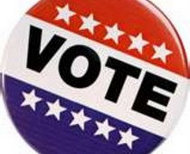|
Debate Rages Over Florida's Election Law Review  August 5, 2011 | WMFE - Florida's new election law is stirring up more controversy, as state officials defend their decision to take the most contentious parts of the law to a federal court instead of to the U.S. Justice Department. The law is already in effect in most of Florida, but it needs federal approval before it's implemented statewide. The Florida Department of State says a court review will remove the possibility of "outside influence," but opponents say there may be other motives at work. The Voting Rights Act of 1965 requires any changes in Florida’s election laws to get "pre-clearance" from the federal government. That's because parts of the state have a history of suppressing minority voting. Pre-clearance can come from the U.S. Department of Justice or from a federal three-judge panel in Washington, D.C. A few months ago, Florida Secretary of State Kurt Browning asked the DOJ for pre-clearance. But last week, he withdrew the four most controversial sections of the 80-part law from DOJ review. He says he’ll seek pre-clearance for those four parts from the three-judge panel instead. “And our belief in doing so is that by choosing the federal district court, we’ll be eliminating any possibility of an outsider influencing the Department of Justice, because we know that with the court system we’ll have a neutral evaluation,” says Chris Cate, communications director with Browning’s office. Cate says there’s been a lot of misinformation surrounding this law. And a lot of groups that oppose it have sent letters of complaint to the DOJ. Deirdre Macnab, president of the League of Women Voters of Florida, agrees that there have been lots of letters. But she thinks Browning made the move for a different reason. “That he has pulled it from Department of Justice and put it into the federal courts – that, I think, is a very clear sign that he doesn’t have the confidence, given that the public is making their voices heard,” says Macnab. The parts of the new Republican-sponsored law that are in question place restrictions on third-party voter registration, address changes at the polls, petition signature verification and early voting. These changes have already prompted lawsuits claiming the measure unfairly targets minorities and students, who tend to vote Democratic. Browning and other supporters argue the changes are not discriminatory and that they’re meant to prevent voter fraud. Ciara Torres Spelliscy is a professor at Stetson University College of Law, and an expert in elections law. She says highlighting those four sections of the law by placing them before the court might backfire on the Secretary of State. She says the court could give them more intense – and unwanted – scrutiny. And in the end, it may not be helpful to Browning. “Traditionally, the DOJ tends to just rubber-stamp almost every change in election law,” says Spelliscy. “It has been extraordinarily rare for the DOJ to find that a change in election law, these days, violated the Voting Rights Act.” She says the court option will be much more expensive, since it’ll involve lawyers arguing for both sides, and it’ll take longer. There may even be appeals. “It’s possible that, no matter what this three-judge panel does, it will not be the end of this story,” says Spelliscy. In fact, she says, this may not be completely resolved until after the 2012 elections. Read the relevant section of the Voting Rights Act of 1965 here. |
|